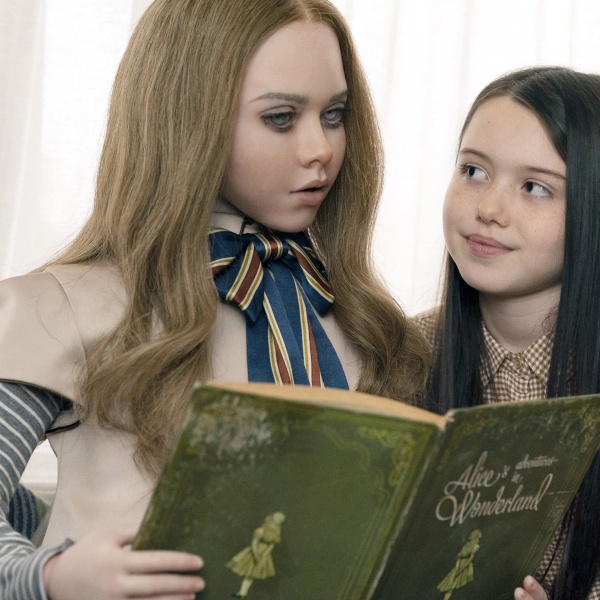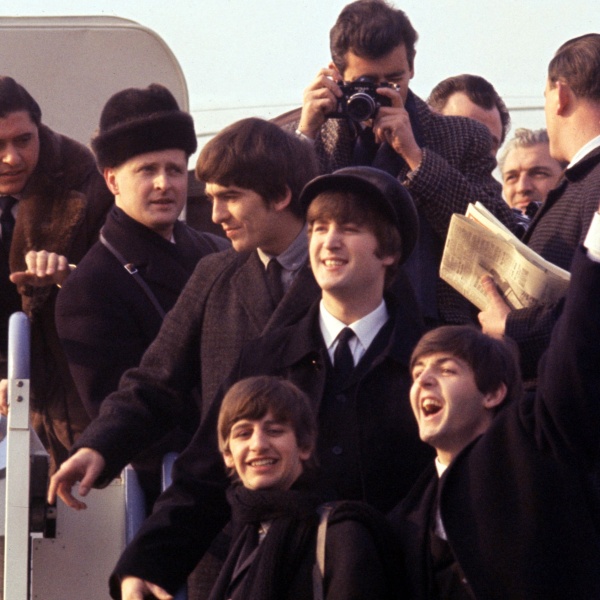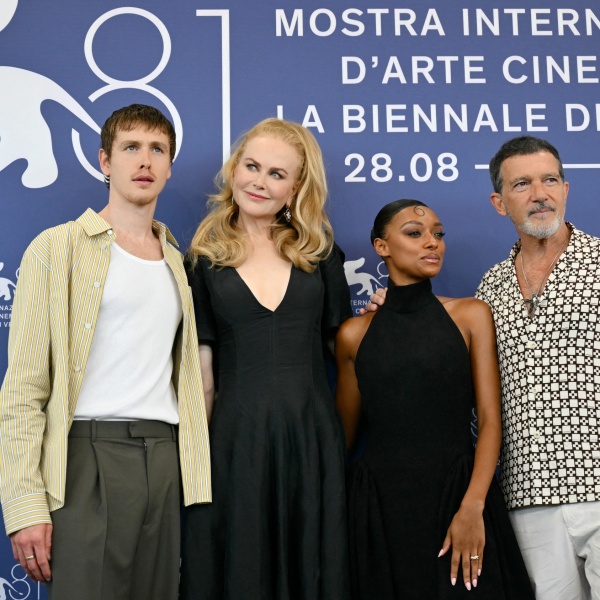The USC Libraries announced the winners for the 36th annual USC Libraries Scripter Award, which honors the year’s best film and television adaptations, as well as the works on which they are based. This group of academics, industry professionals, and critics (for which I vote) is often predictive of the Adapted Screenplay Oscar race.
For the second year in a row, “Slow Horses” took home the prize for episodic series; Cord Jefferson won the 2024 award for film adaptation; both he and the author of the novel he adapted, Percival Everett, were in attendance. Jefferson thanked Everett for trusting him with his 2001 novel, which he felt was written just for him. “He has managed to mine my novel for the material he needed to make this film,” said Everett, who teaches at USC. “And then I sat back and did nothing. So good job. Thank you.”
“I wouldn’t be here without without him,” said Jefferson. “I owe this entire journey that I’ve been on to him. And so I’m so honored that he could be here with me.”
Jefferson is on a winning streak, taking home wins at the Critics Choice and BAFTA awards; in both cases “Barbie” was competing in the Original Screenplay category. At the Oscars, “American Fiction” will be competing against “Barbie” for Adapted Screenplay.
Last year, screenwriter Sarah Polley and novelist Miriam Toews won the film award for “Women Talking,” which was nominated for Best Picture and Adapted Screenplay Oscars; Polley won for Adapted at the Academy Awards. Meanwhile, the television prize last year went to English stand-up comedian and screenwriter Will Smith for the episode “Failure’s Contagious” from “Slow Horses,” based on the novel by Mick Herron.

Past winners include “Call Me By Your Name,” “Moonlight,” “The Big Short,” and “The Imitation Game,” which all won Oscars. In fact, before 2019, eight Scripter Award winners went on to win Oscars.
The USC Libraries announced the winning authors and screenwriters at a black-tie ceremony on March 2 in the bedecked Edward L. Doheny Jr. Memorial Library at the University of Southern California.
The finalist writers for film adaptation are here, in alphabetical order by film title. Winners are indicated in bold.
▪ Cord Jefferson for “American Fiction,” based on the novel “Erasure” by Percival Everett
▪ Eric Roth and Martin Scorsese for “Killers of the Flower Moon,” based on the nonfiction book “Killers of the Flower Moon: The Osage Murders and the Birth of the FBI” by David Grann
▪ Christopher Nolan for “Oppenheimer,” based on the nonfiction book “American Prometheus: The Triumph and Tragedy of J. Robert Oppenheimer” by Kai Bird and Martin J. Sherwin
▪ Ava DuVernay for “Origin,” based on the nonfiction book “Caste: The Origins of Our Discontents” by Isabel Wilkerson
▪ Screenwriter Tony McNamara and novelist Alasdair Gray for “Poor Things”
The finalist writers for episodic series are below, in alphabetical order by series title:
▪ Peter Morgan, for the episode “Sleep, Dearie Sleep,” from “The Crown,” based on his stage play “The Audience”
▪ Scott Neustadter for the episode “Fire,” from “Daisy Jones and the Six,” based on the novel by Taylor Jenkins Reid
▪ Craig Mazin and Neil Druckmann for the episode “Long, Long Time” from “The Last of Us,” based on the video game by Neil Druckmann and Naughty Dog
▪ Will Smith for the episode “Negotiating with Tigers,” from “Slow Horses,” based on the novel “Real Tigers” by Mick Herron
▪ Max Borenstein, Rodney Barnes and Jim Hecht for the episode “The New World” from “Winning Time: The Rise of the Lakers Dynasty” based on the nonfiction work “Showtime: Magic, Kareem, Riley, and the Los Angeles Lakers Dynasty of the 1980s” by Jeff Pearlman
The 2024 Scripter selection committee selected the finalists from a field of 80 films and 56 episodic series adaptations. Howard Rodman, USC professor and vice president/secretary of the Academy of Motion Picture Arts and Sciences, chairs the 2024 committee.
Rodman’s cautionary remarks were partly written by ChatGPT. He went on to say, “It’s not hard to imagine a future — which is to say, a present — in which books are adapted by machine. As easy as pressing a button. And if you thought my opening paragraph a tad generic, imagine the adaptations that will emerge once those who regard writing as content, those who regard novels and stories as IP, decide to eliminate inefficiencies in the chain. And of course, the largest inefficiency is always us.”
This year’s Scripters finalists were hard-working creative writers, Rodman said: “When you’re adapting you’re dancing on a high wire, balancing your obligation backward to the source material, forward toward the audience. As John Le Carré puts it: no loyalty without betrayal. This year’s finalists danced on that high wire without falling. They took great works and betrayed them— Loyally.”






